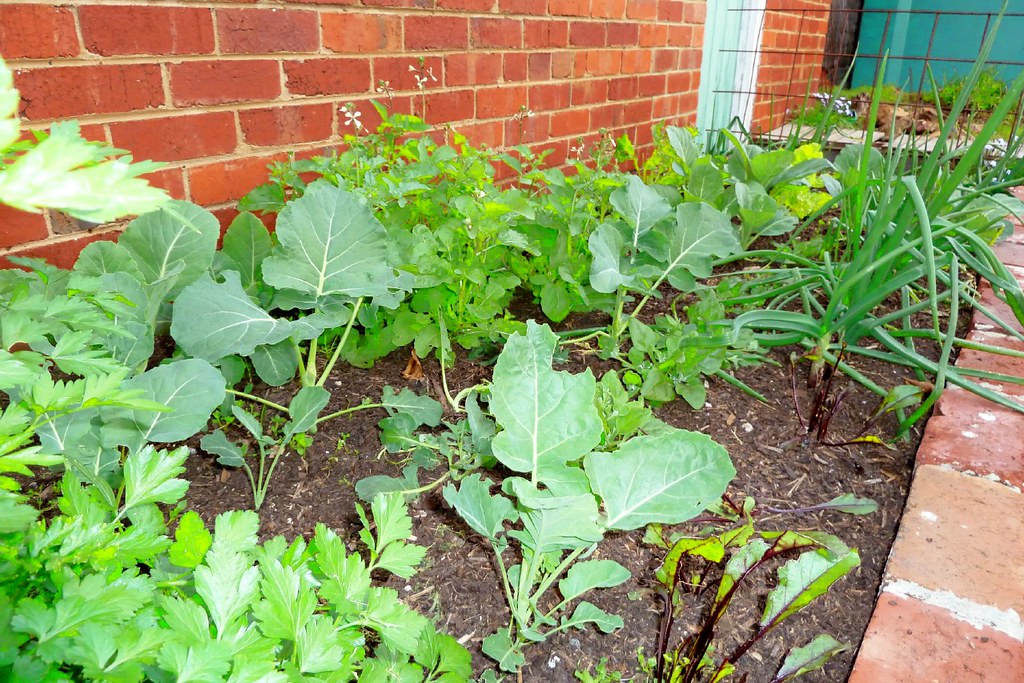
Featured image: Leafy vegetables in a kitchen garden. Photo: Flickr/Tony & Wayne CC BY NC 2.0
In these seemingly distressing times, it has become a reality that the most important aspects of human life are food and health care facilities. Much before these uncertain days, sustainable food and nutrition were just another part of research and policy. But these days, questions that arise include will there be sufficient food for everyone if the lockdown has to be continued. Governments are also trying to take measures to make sure that there is no question of food insecurity, including some governments providing cooked meals to migrant workers as well as those who are quarantined in their homes.
Meanwhile, the World Health Organisation (WHO) has given clear instructions to the food industry to maintain strict hygienic practices to avoid potential fomite transmission of the virus through food or packaging. Hence, there can be fears associated with the purchase and consumption of packaged food. On the other hand, there is a labour shortage, as well as transport hurdles which make the situation more complicated.
There is also the question of rotting of fruits and vegetables as there are no buyers available during the lockdown. This case is most commonly seen with the farmers who were exporting the goods to different states and countries. Also, wherever fruits and vegetables are available, the prices have soared to as high as 40% of the regular price. Buying these items would be extremely difficult for the daily wagers who lack any source of income in the days of lockdown.
Responding to this issue, the Ministry of Agriculture and Farmers’ Welfare has said that all activities relating to mandis, farming activities, manufacturing and packaging units, and movement of harvested commodities are exempt from the lockdown. But, this is not completely being implemented.
At this juncture, we are pressed to think of a sustainable solution for the shortage of food. Kitchen gardens can be one such solution. Kitchen gardens can be very useful to reduce the malnutrition levels as well as make sure that food security is ensured. This has been suggested for even low-income countries like South Africa.
When the lockdown is lifted, it can also be a source of income for households. Kitchen gardens have proved to be successful in reducing stunting rates. Generally, the houses which had kitchen gardens were more likely to feed special complementary foods to infants and to preserve food and consumed more types of home-produced micronutrient-rich vegetables and fruits.
The model of Reliance nutrition gardens in India is an excellent example of kitchen gardening. This is a cost-effective, scientific, holistic, and practical model for ensuring food security. Crops are selected in keeping with prevailing food habits, the micro-climate of the region of implementation, and to ensure year-round availability of wholesome and nutritious food. Kitchen gardening can be a measure to introduce children to diverse food items and increased eco-literacy. Not just that, the involvement of children in the kitchen garden can increase their consumption of, even bitter and the sour-tasting food items, which are otherwise usually not consumed by the children.
In addition to these, there are numerous environmental benefits of having a kitchen garden. This kind of backyard gardening can provide a partial but important solution to issues of polluted water, parasites, and smoke inhalation. This will also promote the consumption of locally grown food, reducing the food miles, thereby contributing less to the carbon footprint. The added advantage with the practice of kitchen gardening is that since it is grown on a small scale to meet the needs of the family, organic ways of cultivation can be practised. This is beneficial for one’s health as well as the health of the planet.
Now is the time when those who have been practising kitchen gardening can reap the best from their efforts. Kitchen gardening is a practical, cost-effective and sustainable solution for multiple issues that we are facing. A pandemic like COVID-19 can help us realise the vital components of human life and work for a more sustainable future.
Daisy A. John and Giridhara R. Babu work at the Indian Institute of Public Health, Bengaluru, Public Health Foundation of India.

